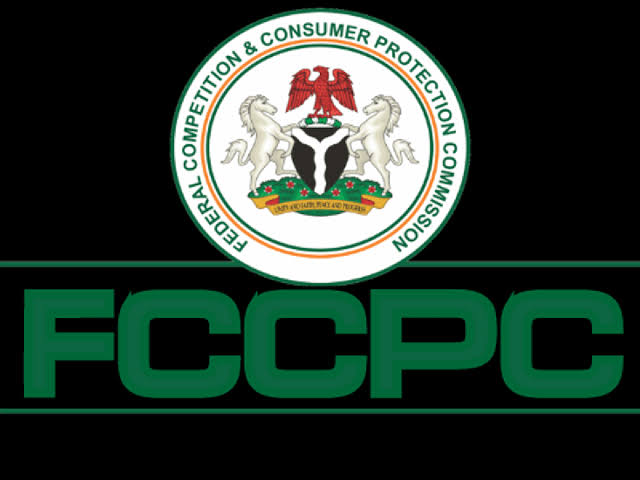The Executive Vice-Chairman/Chief Executive, Federal Competition and Consumer Protection Commission (FCCPC), Mr. Tunji Bello, sternly addressed traders, market leaders, and other stakeholders about their unethical market practices, which result in unjustifiable price hikes.
At a stakeholders’ meeting in Abuja, Bello expressed concern about the alarming trend of inflated prices of consumer goods and services, as well as the unfair manipulation of prices by market associations.
He emphasized that these practices have eroded consumer trust and posed a threat to the stability of the economy.
Bello indicated that the FCCPC, as an empowered organization, has conducted extensive market surveys nationwide to address these issues.
He underscored that the law grants the commission the authority to impose heavy fines and prosecute offenders, potentially leading to jail terms.
Bello highlighted that the FCCPC’s new initiative aligns with President Bola Tinubu’s Renewed Hope agenda, emphasizing the welfare of Nigerians in all economic activities.
He emphasized that the council is committed to upholding this agenda by ensuring that market practices do not worsen the economic challenges faced by citizens, especially during difficult times.
Additionally, he lauded President Tinubu’s efforts to alleviate food security concerns, including steps such as providing fertilizers to farmers and removing tariffs on the importation of certain staple food items.
The FCCPC Boss said, “It is only just and reasonable that distributors and traders pass down the gains to Nigerian consumers by reducing prices in the coming weeks”.
He stressed the importance of all parties embracing patriotism and working together.
He emphasized that Section 107 (4a) of FCCPA specifies that if an individual is found guilty, they may face a prison sentence of up to three years, a fine of up to N10 million, or both.
Furthermore, Section 107 (4b) states that if a corporation is convicted, it may be fined up to 10% of its previous year’s turnover.
Mr Bello said, “In the spirit of democracy, we are first exploring the option of dialogue. It is also in this spirit that we are giving a moratorium of one month (that is, September) before the commission will start firm enforcement.
“Let us work together to create a marketplace that is not only competitive but also fair and just. The FCCPC is committed to continuing these dialogues, monitoring compliance, and taking decisive action where necessary.”
During an interview, Bello emphasized that Nigerians are currently experiencing the impact of high inflation and unlawful price hikes, which highlights the need for the FCCPC to step in.
Bello expressed the view that the FCCPC has a crucial role to play in promoting fair competition in the market and ensuring long-term consumer protection.
“What we are saying is that there are situations where you have people fixing prices here and there, contrary to what is supposed to be achieved.
“Let us engage the traders, the retailers, the wholesalers, and every sector; and those who are responsible for allowing goods into the markets.
“And that’s what we have come to do and we have listened to them. We have heard their feelings. This is a very good feedback for us.” He added.
The official stated that the commission supports legitimate business activities and profits.
However, they are opposed to illegal excess profits and collusion among businesses. The focus is on preventing unfair exploitation rather than interfering with normal trade.
The commission emphasized its role in safeguarding consumer rights and expressed concern about unjustifiable pricing disparities and inflated margins on both imported and locally produced goods.
In a specific example, it was highlighted that a fruit blender called Ninja was priced at $89 in a US supermarket, while the same product was being sold for N944,999 at a supermarket in Lagos, representing a price inflation of over 500 percent.
“Interestingly, when our undercover officer visited the same supermarket two weeks earlier, this same blender was on display with the price tag of N750,000.
“The question then arises: what is the basis for this arbitrary hike in the price of the blender compared to the United States? What business principle can justify this level of profiteering?” The FCCPC Boss explained.
During its investigation, the commission uncovered additional unpleasant findings in several prominent supermarkets discreetly surveyed in Abuja, Kano, Port Harcout, and Lagos.
He said, “We also found that prices were arbitrarily jacked up from time to time without any justifiable reason. In one particular big supermarket in Abuja, for instance, consumers were being charged N2,600 for an imported toilet soap at the payment point as the price tag was not displayed as earlier mandated by FCCPC.
“The same toilet soap was displayed for sale at N1,950 at a popular supermarket in Lekki, Lagos the same day.
“That already constitutes a double offense. From our findings, the penchant to hike prices arbitrarily is also common among sellers of food items and transport operators.
“When the foodstuff sellers were engaged, their common response was that the cost of transportation had increased.
“But how justifiable is it for the tomato seller to double the price of a basket of tomatoes simply because they paid higher transport fare?”
He said, “Whereas the price of the same basket of tomatoes was far cheaper at another market within the same jurisdiction surveyed by our field officers.
“Now, the question: did the seller who sold at a lower price not also pay transport fare?
“In a typical foodstuff market environment, this is how price fixing happens. A trailer-load of yam tubers arrives Wuse market in Abuja from, say, Benue State.
“Rather than allow free trade, the market cartel then insert themselves between the produce farmers and the retailers.
“They buy in large quantities from the producer at cheap rate and, in turn, sell to market retailers at much higher price.
And the retailers, in turn, sell to consumers at cut-throat rate.”



